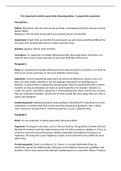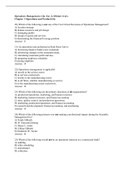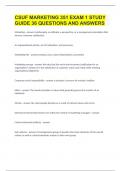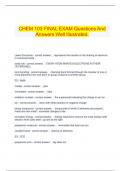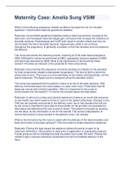Summary
Summary Meta-ethical theories ESSAY PLANS- Philosophy & Ethics A Level OCR
- Course
- Institution
3 ESSAY PLANS These essay plans helped me get an A* overall in OCR Philosophy & Ethics (Full Marks on ethics paper). Essay plans discussing the complexities surrounding meta-ethical theories. The essay plans have a particular focus on AO1, so that students are able to learn this topics conten...
[Show more]
